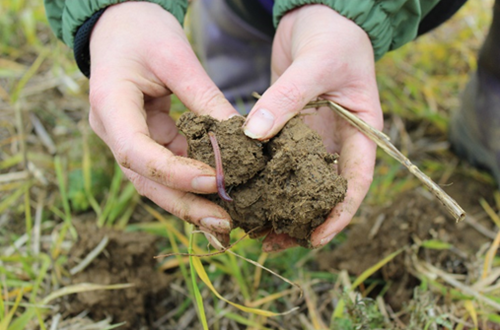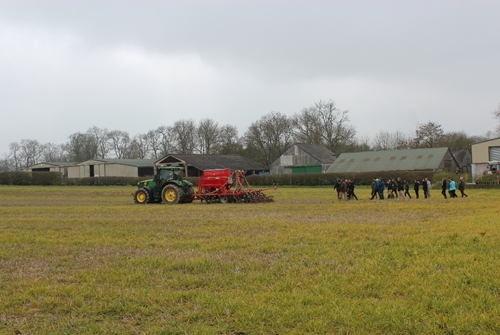
At the Allerton Project we host a wide range of advisory workshops and educational activities. These often centre around profitable farming and environmental management. Key goals of the UK farming sector include conservation and improvement of the environment, along with biodiversity on farms coupled with sustainable farming practices.
Effective environmental management of farmland is becoming as important as productivity and with the coming changes taking place within British agriculture, GWCT were part of a group working with BASIS (Registration) Ltd to develop the new BETA Conservation Management course. The new course sets environmental management in the context of commercial farm practice and is timely, as environmental stewardship becomes an increasingly important part of overall farm and land management post Brexit.
The 3-day course is designed for all those working in agricultural and covers a full range of issues such as cross-compliance, environmental management, conservation or Countryside Stewardship agreements. It’s a course that is relevant across the board, from agronomists, land agents and conservation advisers, preparing them to advise and implement effective farmland conservation management.
The core course covers four key areas: farmland wildlife and habitats – conservation and improvement; farming and the wider environment; soil management; and water and environmental protection.

In each area, candidates will learn about the key principles to both protect environmental features and to implement practices that will encourage improvements in flora, fauna, soil health and water quality. The course delivers an understanding of why these issues matter within a commercial farming context and how they can contribute to profitability of a farm business.
The revision of the syllabus has also seen the introduction of two specialist modules focusing on Agricultural and Environmental delivery. These specialist modules will also be available to sit at the Allerton Project where aspects of the course will be demonstrated alongside the project’s many years of research and out on a working farm.
The agricultural specialism is designed to outline aspects of integrated farm management. It covers a wide variety of topics including but not limited to importance of pollinators and predatory insects, soil biology and practical pest management plans.
The environmental specialism builds on management of the natural environment for both conservation and commercial use. It will include identification skills, landscape management planning and habitat structure.
The team really enjoy delivering the material and we have a 98% pass rate. The feedback is very rewarding in itself:
- Lots of new content not covered in other BASIS courses. Lots of outdoor walks & examples of course content - easy to digest information, excellent examples, keeps you interested & engaged.
- The best place to learn this subject, the knowledge & practical application at Allerton with GWCT staff is second to none.
- Would recommend to anyone. Also thought the lunch was stupendous!!
- Great for advisers, gives you the right information to be confident on farm visits. Delivered in a very positive way.
- Very good course for boosting knowledge of conservation benefits which can also help economic returns to farm.
- Good breadth of topics with case studies. Good to be able to learn in class and then see certain bits on the farm, then ask additional questions - sometimes you really need to see it!
- Good mix of practical and classroom. Great notes provided. Great syllabus.
- Going out and seeing it in a real farm situation.
For me information and course dates please go to our website;
https://www.gwct.org.uk/allerton/education-and-training/beta-conservation-management-certificate/
Or contact Amelia Woolford to book a place.
The Allerton Project, Game & Wildlife Conservation Trust
Loddington, Leicester. LE7 9XE
Email: awoolford@gwct.org.uk
Tel: 01572 718730
